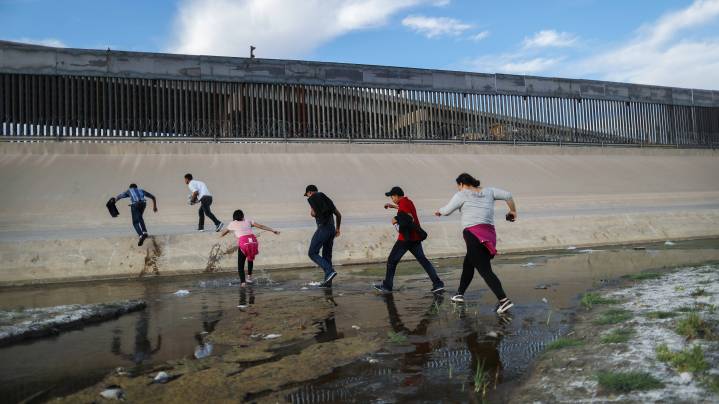Trump Administration Plans to Collect DNA Samples From Asylum Seekers

Migrants cross the border between the U.S. and Mexico at the Rio Grande river, as they enter El Paso, Texas on May 19, 2019. Photo by Mario Tama/Getty Images
The Trump administration is planning to collect DNA samples from asylum seekers who are detained by immigration officials.
On Monday, an official speaking on the condition of anonymity told the Associated Press that the Justice Department would mandate DNA collection for almost all migrants and asylum seekers who cross between official entry points and are held even temporarily. The move would expand officials’ power to collect DNA, which is currently only allowed for migrants who have been prosecuted in federal court for criminal offenses.
The administration said collecting the DNA samples will help border officials better assess the individuals who cross into the country without authorization. But lawyers and immigrant rights advocates believe the government will be crossing sensitive privacy lines.
“DNA collection raises serious privacy and civil liberties concerns and lacks justification, especially when DHS is already using less intrusive identification methods like fingerprinting,” the ACLU said in a statement earlier this month.

The rule will not apply to permanent residents or immigrants entering the U.S. with papers. Children below the age of 14 are also exempt.
The proposed regulation won’t take effect immediately. Justice officials are having a 20-day comment period for the public to weigh in. A pilot of the program is expected to begin afterwards.
After collecting the DNA information, officials will enter it into a massive FBI database used by law enforcement looking for criminals.
John Sandweg, a former senior immigration official in the Obama administration, called the program “unnecessary.”
“In many ways, it’s unnecessary from a law enforcement perspective,” he said. “I don’t understand what you’re going to get out of it. The idea that some guy crossing the border committed a crime, returned and came back all undetected is very remote.”